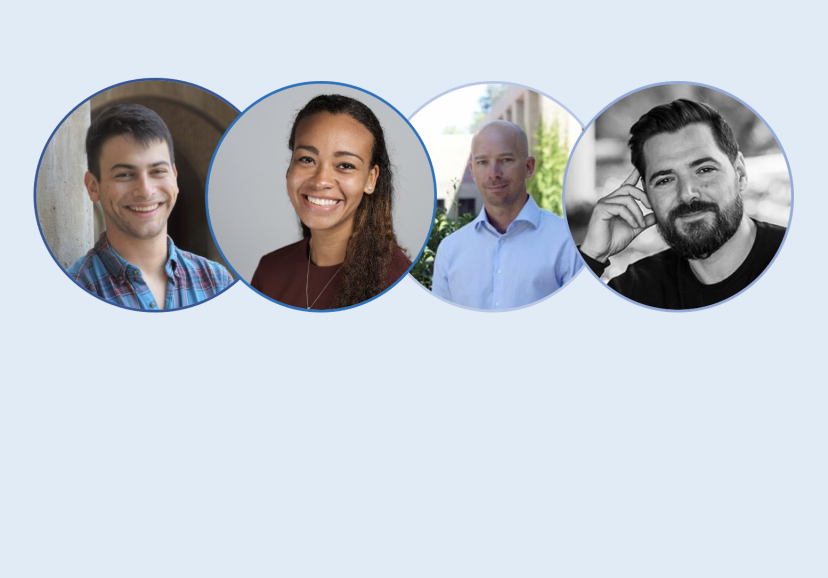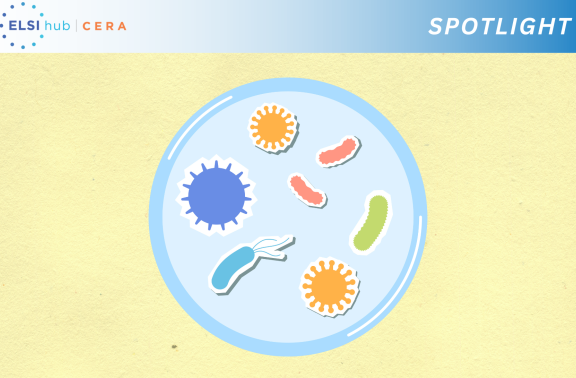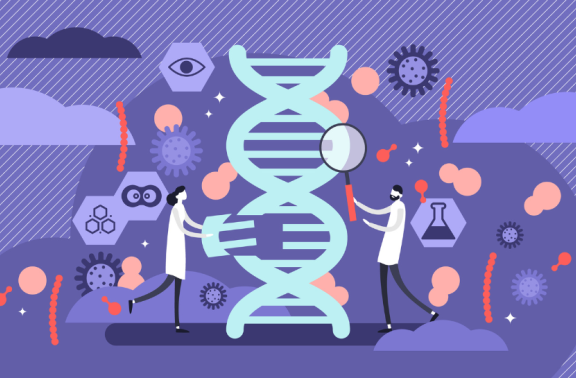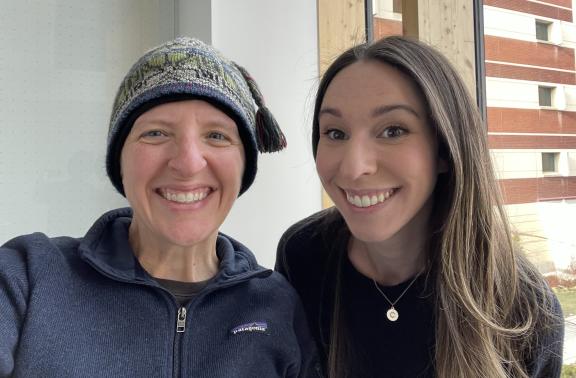
Unique Collaboration Supports Research Communication in Social and Behavioral Genomics
Despite some fundamental disagreements about the risks versus the potential benefits of social and behavioral genomics, the interdisciplinary group of researchers behind the new ‘FAQs on Human Genomic Studies’ (FoGS) repository agree that socially responsible research and research communication are important, especially in social and behavioral genomics. FoGS, hosted by The Hasting Center, is an open-access repository of explanatory documents created by social and behavioral genetics researchers to explain their findings in specific studies. It is the product of a unique collaboration between two ELSI scholars, Daphne Martschenko (Stanford Center for Biomedical Ethics) and Lucas Matthews (Columbia University & The Hastings Center), and two social science researchers who integrate genomic data into their research on social and behavioral outcomes, Ben Domingue (Stanford University, Graduate School of Education) and Sam Trejo (Princeton University, Department of Sociology). The repository was profiled in a Nature Genetics article earlier this year.
Your recent article in Nature Genetics explains that you created this resource to enhance the accessibility of materials that communicate social and behavioral genetics research to the public. Could you tell us why you felt it was necessary to take action to prevent misconceptions and misapplications of research in this area of inquiry?
Drs. Martschenko, Matthews, Domingue, & Trejo: The psychologist Eric Turkheimer wrote in a 2015 Hastings Center Special Report that “the fundamental reason the genetics of behavior has remained so controversial for so long is that the layer of theory between data and their interpretation is thicker and more opaque than in more established areas of science.” The field of social and behavioral genomics has a long and ugly history. Genetics have been used, and are still used, to validate the myth that there are inherent biological differences between racial groups that make some superior to others. We thought it important to amplify existing materials designed to prevent misconceptions and misapplications of social and behavioral genomics research because the tendency is often that genetics research on human behavior is interpreted in ways that reinforce racist, classist, and ableist ideologies.
You mention in your paper that the scientific enterprise (inclusive of the tenure and publishing processes) does not incentivize the creation of FAQs. Given this, how do you explain your interesting finding that FAQ production appears to have increased in recent years?
Drs. Martschenko, Matthews, Domingue, & Trejo: The field of social and behavioral genomics is gaining more media attention and funding. It can access larger and larger sample sizes for analysis. Alongside these things comes enhanced scrutiny from the public, fellow researchers, grant funding bodies, and so on. Although we cannot definitively explain why FAQ production appears to have increased in recent years, it could be because an increasing number of genomic studies on social and behavioral discoveries are getting published. There may also be a growing desire among researchers to ensure their work is not misconstrued or misapplied as the media focus more attention on this area.
What would you say to behavioral geneticists who may be uncomfortable speculating about the implications of their work and are not considering activities to ensure that their research is communicated in a responsible manner? What should motivate researchers to engage in FAQ production and similar responsible research communication efforts?
Drs. Martschenko, Matthews, Domingue, & Trejo: There is a persistent belief that a scientist’s responsibilities stop at publication. We disagree. Science does not exist in a vacuum. Societal responsibility is, we believe, part of what constitutes the responsible conduct of research. At the same time, we know that there are no incentives for researchers to engage in FAQ production or similar responsible research communication efforts. The research enterprise does a good job of trying to limit individual liability but is less successful at maximizing societal responsibility. Until these incentive structures change, it will be difficult to encourage those who are not considering activities to ensure their research is communicated in a responsible manner that it is worthwhile to do so. We hope FoGS might offer one incentive for socially responsible research communication, but we know it’s just a drop in the bucket.
What audiences do you think will benefit the most from the FoGS repository?
Drs. Martschenko, Matthews, Domingue, & Trejo: The original intention behind these FAQs was to combat hyperbolic news headlines. The Social Science Genetic Association Consortium (SSGAC) published the first FAQ in 2013 to accompany their genome-wide association study (GWAS) on educational attainment with journalists in mind. They wanted to avoid headlines such as “Gene for educational success found!” We’ve worked to try and further increase the accessibility of these FAQ documents by creating brief summaries for each individual study that is in our repository and organizing FoGS into sections, e.g., genomic studies of educational traits & outcomes; genomic studies of social and environmental factors; genomic studies of psychological and psychiatric behaviors; genomic studies of sexual behaviors; etc. Our hope is that FoGS will prove a useful resource for journalists but also for policy makers, members of the public, and other academic researchers. This is just the beginning. A lot can still be done to make these materials even more accessible. For example, we plan to create a FAQ template to support clear and comprehensive communications between researchers and the various FAQ audiences.
Is there anything else you would like to tell the CERA audience about the FoGS repository?
Drs. Martschenko, Matthews, Domingue, & Trejo: We are incredibly grateful that the ELSI community has received the creation of FoGS with enthusiasm and optimism – yet we see ourselves as making more accessible the valuable information that researchers before us have developed. We want to acknowledge and thank those researchers for the hard and often thankless work that went into the creation of FAQs in the first place. We also hope the creation and development of the FoGS repository will inspire scientists working both inside and outside of behavioral genetics to consider how to responsibly communicate their own work. Further, we encourage the CERA audience to look for opportunities to develop FAQs for scientific research that may be prone to misinterpretation.
To submit an FAQ for your social or behavioral genomics study to the FoGS repository, email the editorial team at [email protected]. Visit the FAQs on Human Genomics Studies Submission Guidelines for more information on how to submit and the repository inclusion criteria.
The FoGS repository is just one of the 1,000 resources available in the Additional Resources section of ELSIhub. Additional Resources is a collection of ELSI-relevant information curated by the CERA, including data sharing resources, policy resources, news outlets and blogs, data archives, and more. Please email us at [email protected] to suggest or share new Additional Resources with the ELSI community.



